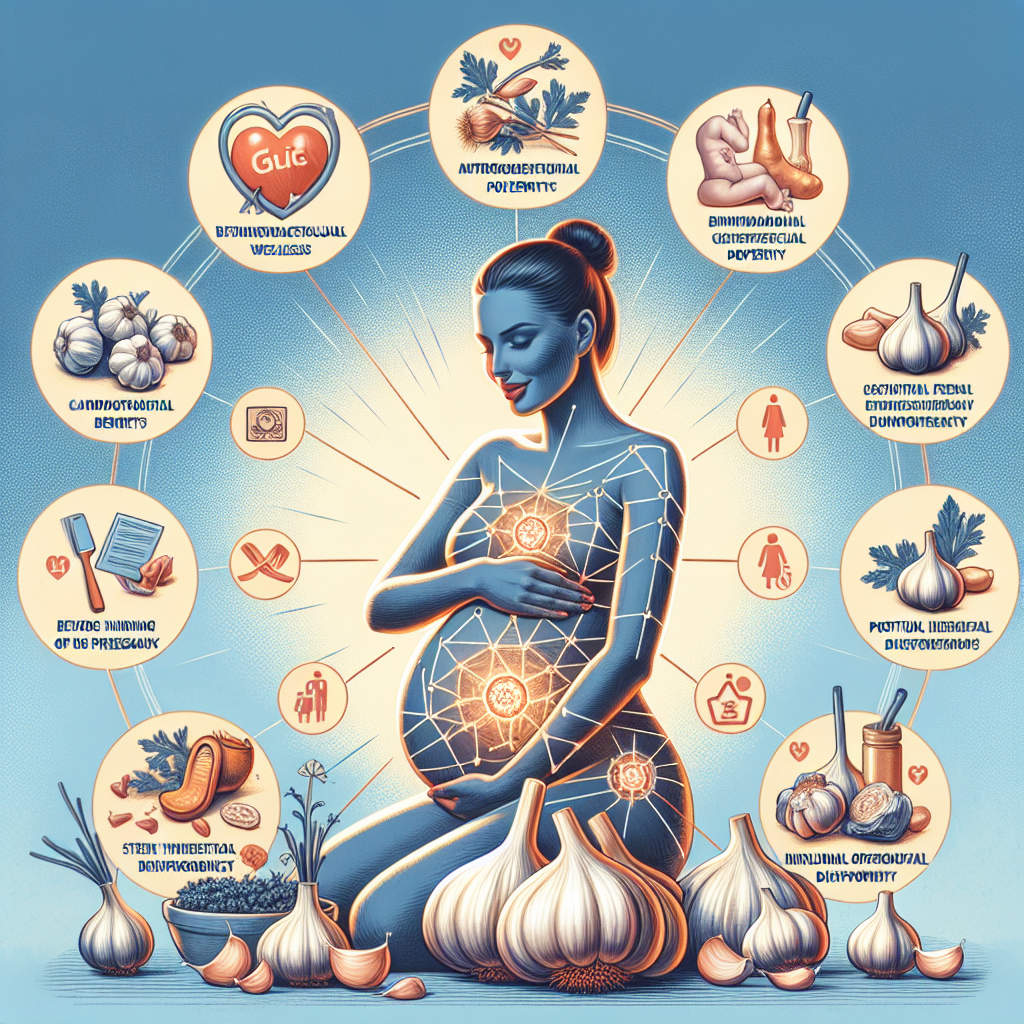Garlic in Pregnancy: Recommendations and Precautions for Pregnant Women
Pregnancy is a complex time in any woman's life, and nutrition plays a crucial role in the healthy development of the fetus. Garlic, a common ingredient in cuisines around the world, can raise questions among pregnant women. This article explores the benefits and risks of eating garlic during pregnancy and offers recommendations for mothers in this special stage of life.
Benefits of Garlic for Pregnancy Health
Garlic is recognized for its antibacterial, antioxidant and anti-inflammatory properties. It is an excellent source of vitamins such as Vitamin C and Vitamin B6, which are essential for maintaining a strong immune system and supporting the baby's neurological development.
Garlic also contains allicin, a substance thought to help reduce the risk of pre-eclampsia, a condition that can occur in pregnancy and is characterized by high blood pressure and edema (swelling).
Risks and Precautions related to Garlic Consumption During Pregnancy
Although garlic has many health benefits, there are also some precautions to consider during pregnancy. Too much garlic can lead to gastric discomfort, including heartburn and gas, which can already be exacerbated by pregnancy.
Some experts suggest that high consumption of garlic could increase the risk of bleeding, as it has anticoagulant properties. This is especially important near term or before a caesarean section, where controlled bleeding is vital.
Recommendations regarding the consumption of garlic for pregnant women
To benefit from the positive properties of garlic and minimize the risks, it is recommended that pregnant women consume garlic in moderation. Consumption of garlic should be in small amounts and ideally as part of a balanced meal.
Health organizations usually recommend that garlic be eaten fresh and well cooked to avoid any potential risk of infections, for example listeriosis, which can be harmful during pregnancy.
The introduction of garlic in the diet of pregnant women
If you are pregnant and want to include garlic in your diet, it is best to start with small amounts to see how your body reacts. Include garlic in cooked dishes such as soups, stews or stir-fries to benefit from its flavor and properties while avoiding side effects.
It's also important to consult a doctor or nutritionist before making any major changes to your diet, including including or excluding foods like garlic.
Conclusion
With all these recommendations and information in mind, garlic can be a tasty and healthy addition to a pregnant woman's diet, as long as it is consumed with caution and in controlled amounts. It's important to remember that every pregnancy is unique, and what works for one may not be right for another. Therefore, it is crucial to pay attention to your body's signals and have open communication with your doctor to ensure the health of both you and your developing baby.
Pregnant women who want to include garlic in their diet are encouraged to visit our special section of the store to discover products tailored to their needs and subscribe to our newsletter for more nutrition and health tips.














































































































































